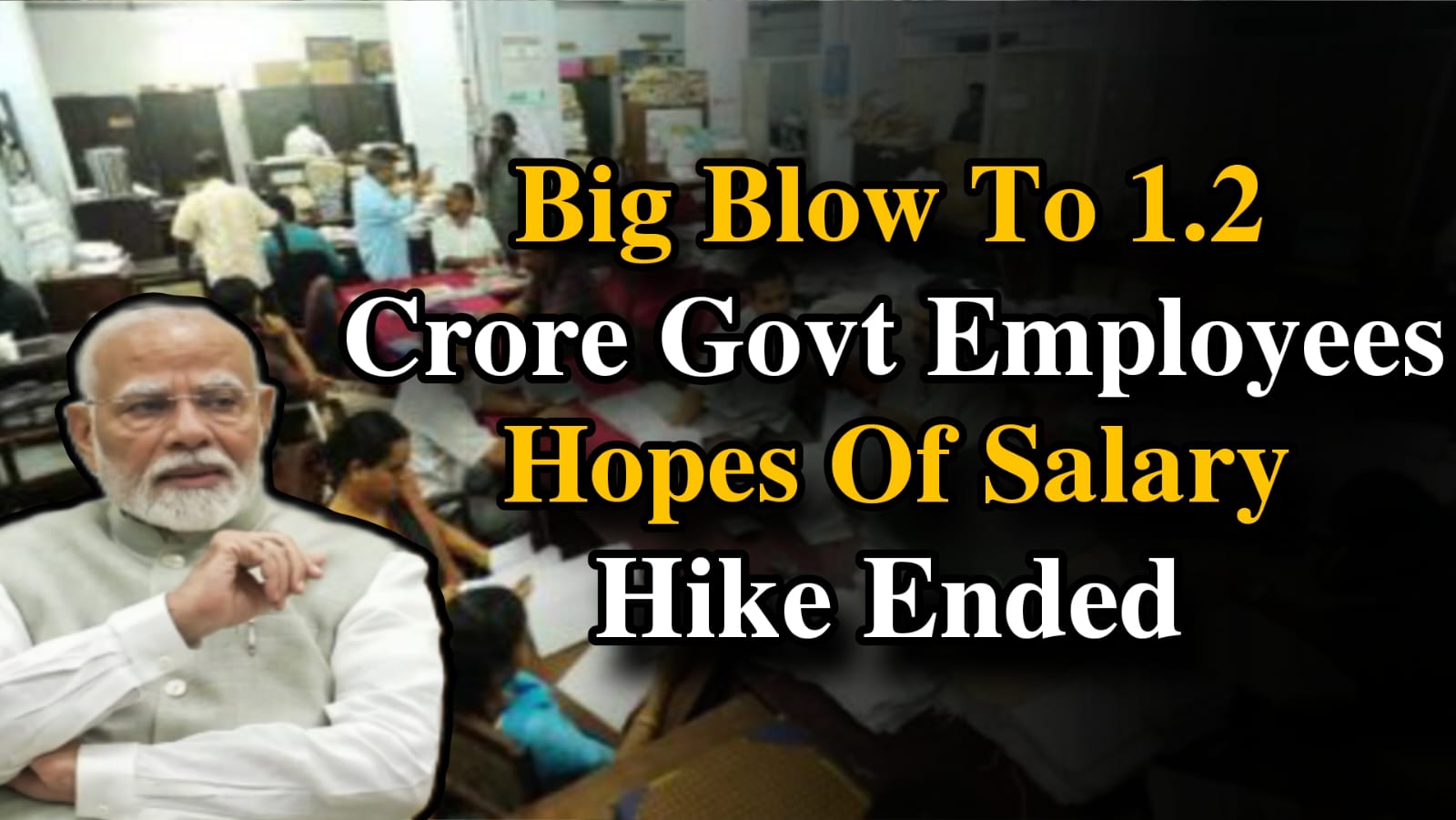Salary Hike : In what comes as a major disappointment for more than 1.2 crore government employees and pensioners across India, recent developments regarding the 8th Pay Commission have created uncertainty and concern. While there was widespread anticipation and hope for a salary revision under the new commission, a fresh report has suggested that these hopes may not materialize anytime soon. The delay in the commission’s formal establishment has now raised doubts about its timely implementation, leading to increased anxiety among employees and pensioners alike.
Salary Hike : Government Approved But Yet to Formally Constitute the 8th Pay Commission
The Central Government officially approved the formation of the 8th Pay Commission on January 16, 2025, but surprisingly, the commission has not yet been formally constituted. As of now, no official appointments have been made regarding the chairperson or members of the commission. The Terms of Reference (ToR), which outline the scope and objectives of the commission, are also still being finalized.
This delay has left central government employees and pensioners waiting in anticipation, as they hope for clarity and confirmation on how and when the new pay scales will be implemented.
Salary Hike : Hopes of Implementation by January 2026 Almost Ruled Out
Based on the current pace of developments, implementing the 8th Pay Commission by January 1, 2026, now seems highly unlikely. The existing pay commission, the 7th Pay Commission, is set to complete its tenure on December 31, 2025, and any hope for a seamless transition into the 8th Pay Commission is fading rapidly.
Given the bureaucratic processes involved—including the formation of the commission, drafting the report, stakeholder consultations, and eventual cabinet approval—the timeline is already too tight to meet the January 2026 target. As a result, employees may not receive revised salaries or benefits on time, which is bound to cause dissatisfaction across departments.
Salary Hike : Historical Pattern Shows Long Implementation Timeframe
Looking at the past pay commissions, it is clear that the process—from the commission’s formation to the actual implementation—takes 2 to 2.5 years on average. For instance:
-
The 6th Pay Commission was formed in October 2006. Its report was submitted in March 2008, and the recommendations were approved and implemented in August 2008, with retrospective effect from January 1, 2006.
-
Similarly, the 7th Pay Commission was set up in February 2014. It submitted its report in November 2015, and the Cabinet approved it in June 2016, again with retrospective effect from January 1, 2016.
In both cases, while the financial benefits were applied from a backdated effective date, the payment of arrears was phased over time. This historical trend makes it evident that even if the 8th Pay Commission is formed by the end of 2025, actual implementation could stretch to 2027 or even 2028.
Formation of 8th Pay Commission Still Uncertain
As of now, there is no clear roadmap for the complete formation of the 8th Pay Commission. While the government has issued deputation circulars for 35 staff posts, the appointment of key figures like the Chairperson and Members is still pending. The government is reportedly focused on finalizing the ToR before moving forward with formal appointments.
If the commission is established in late 2025 or early 2026, it is highly probable that the report will only be ready by 2027 or even early 2028. Following the submission of the report, it usually takes another 6 to 8 months for the government to review, approve, and implement the recommendations.
However, the government still holds the power to implement the new salary structure retrospectively from January 1, 2026, as done in previous instances. This will entirely depend on political will and the prevailing fiscal conditions.
Employees’ Demands and Expectations from the 8th Pay Commission
Various employee unions and federations have submitted a list of demands and suggestions to the government, hoping these will be considered in the upcoming pay commission. Among the key demands are:
-
Minimum wage revision based on a five-member family model.
-
Merger of multiple pay levels to simplify the salary structure.
-
Pension revision every five years, rather than every ten.
-
Restoration of commuted pension after 12 years.
-
Merger of 50% dearness allowance (DA) with the basic salary to offset inflation.
These demands reflect the broader concerns of government employees who are grappling with rising living costs and are expecting more responsive and timely revisions in their pay structures.
Speculation on Fitment Factor and Salary Hike
One of the major aspects under speculation is the fitment factor, which determines how much the basic salary will be multiplied to arrive at the revised pay. Currently, the 7th Pay Commission uses a fitment factor of 2.57x.
-
If the 8th Pay Commission adopts a fitment factor between 1.92x to 2.86x, the minimum basic salary could increase significantly.
-
For example, a current basic salary of ₹18,000 could potentially increase to ₹51,000 depending on the finalized multiplier.
-
This would also benefit pensioners, especially under the New Pension Scheme (NPS), as it could result in better pension benefits and increased Dearness Relief (DR).
However, all of this remains speculative until the commission is officially constituted and the Terms of Reference are finalized. Until then, employees and pensioners are advised to wait for formal announcements rather than rely on unofficial projections.
Conclusion : Patience Required Amidst Political and Fiscal Uncertainty
In conclusion, while the 8th Pay Commission has been greenlit in principle, the actual implementation appears to be a long and uncertain process. With the current lack of clarity on appointments, timelines, and ToR, it is becoming evident that government employees might not see a salary hike by January 2026.
Although the possibility of retrospective implementation remains open, this will be contingent upon the political climate and the financial position of the central government at that time. Until then, the employees and pensioners can only wait and hope for quicker administrative action and favorable policy decisions.



